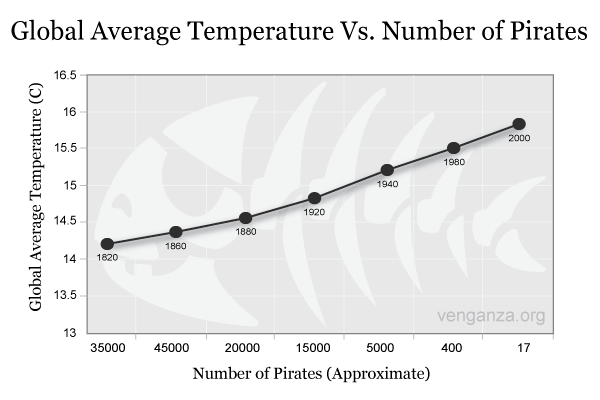Breakfast. Is it really necessary?
Replies
-
If diabetes runs in your family, it is a very good idea to eat breakfast to reduce the amount of work your pancreas and liver have to do to keep your blood sugar steady - this can potentially delay the onset of diabetes (and if you are diabetic, you obviously do need to eat breakfast to avoid blood sugar getting too low)0
-
breckfast is like poo its unpredictable necessary you need to set u up for the day
people that eat breckfast fuction more drunning the day like when you poo0 -
ARE YOU OUT OF YOUR MIND! Of course breakfast is necessary.
There is a saying: "Eat breakfast like a king, eat lunch like a prince, eat dinner like a pauper"
It is absolutely critical to eat breakfast, all studies show that people who eat breakfast weigh less then people who don't.
EAT UP!0 -
Of course.:indifferent:breckfast is like poo its unpredictable necessary you need to set u up for the day
people that eat breckfast fuction more drunning the day like when you poo0 -
Keep in mind that humans <> rats.I searched Google Scholar for meal timing, but didn't find much at first glance.
However, I found one study where rats were either fed immediately after resistance exercise or 4 hours later, and the rats fed immediately after exercise had more lean tissue mass and less adipose tissue mass.
Thanks! A voice of reason. Thanks for looking that up!
Incorrect, see Sammy the Bull Gravano ;P0 -
It seems as though there are two different conversations going on in this thread: physiological and psychological.
People seem to be confusing things that, for them, are psychologically effective as scientific fact.
It may be true that eating small meals throughout the day helps you stay on course with your calorie needs. It also may be true that you've found eating late at night reduces your ability to effectively manage caloric intake.
Neither action is the reason you're losing or not losing weight. That reason is: calories in vs. calories out.
Those are psychological methods that can help a person alter their current behavior.
Meal timing as an important role in body composition, is a myth. Meal timing, in that you eat your meals at some time during the day, is true. But the # of meals you eat and at what time(s) you eat them plays no direct role in body composition. In reality, whatever is more convenient/allows you to feel and perform/rest your best is going to be most optimal in the long run.
Or the problem could be people incorrectly assuming that the physiological needs of everyone are the same.
I certainly wouldn't assume the physiological needs of everyone are the same, but that doesn't change the fact that the timing of your meals is largely irrelevant or that people are confusing psychological consumption tools with science.0 -
breckfast is like poo its unpredictable necessary you need to set u up for the day
people that eat breckfast fuction more drunning the day like when you poo
Are you saying that you eat poo for breakfast <breckfast>? That reminds me of the line from Happy Gilmore.0 -
Here are other studies that might be relevant:
Meal Timing and Leptin:
http://goo.gl/b2kM9
Breakfast Habits, Nutritional Status, Body Weight, and Academic Performance in Children and Adolescents:
http://goo.gl/2OBLi0 -
Yes absolutely. If I eat a good breakfast even though I've used up a larger chunk of my cal for the day, I find I do better with staying on track the rest of the day, and I have more energy and feel better and do just fine with balancing whats left.
When I have a skimpy breakfast, I end up snacking more and sometimes it can lead to binging.0 -
I certainly wouldn't assume the physiological needs of everyone are the same, but that doesn't change the fact that the timing of your meals is largely irrelevant or that people are confusing psychological consumption tools with science.
But, doesn't "largely irrelevant" = "sometimes relevant"? Or, in other words, it is physiologically important for some people.
Plus, how can something be a myth if it is psychologically necessary for so many people? Why would only physiology matter when determining if something is necessary?0 -
ARE YOU OUT OF YOUR MIND! Of course breakfast is necessary.
There is a saying: "Eat breakfast like a king, eat lunch like a prince, eat dinner like a pauper"
It is absolutely critical to eat breakfast, all studies show that people who eat breakfast weigh less then people who don't.
EAT UP!
Right, and you assume all "sayings" are right? Studies show people who eat breakfast weigh less than people who don't?! OMG, I'm convinced! Ofc they tracked EVERYONE, tracked EVERYTHING they ate, EVERYTHING they did, etc? And this graph proves, by your logic, that the reason the worlds temperature is going up is due to the decreasing number of pirates, right?
Correlation ≠ Causation...0 -
I certainly wouldn't assume the physiological needs of everyone are the same, but that doesn't change the fact that the timing of your meals is largely irrelevant or that people are confusing psychological consumption tools with science.
But, doesn't "largely irrelevant" = "sometimes relevant"? Or, in other words, it is physiologically important for some people.
Plus, how can something be a myth if it is psychologically necessary for so many people? Why would only physiology matter when determining if something is necessary?
Physiology is the only thing that matters in this case because we're talking about physiology vs. psychology. That was the question posed in the thread. If you change the question, then the answer may change.
I think you answered your own question by trying to parse my words. Psychology and physiology are not the same thing, although folks seem to have a hard time separating the two in theory and in practice. It can be a complicated topic.
Something can be physiologically unnecessary (and thus a myth) but many will feel it psychologically necessary - which is what you're talking about. The blending of the two in determining need.
The physiological research says that it doesn't matter when you eat, only that you do eat. I stated that meal timing is largely irrelevant because, as I've also said, I realize that some people feel like it works on a psychological level. I'm not discounting the blending of a person's psychological state and their physiological state, only pointing out that a person's psychological "needs" are always needed at all.
If you feel like you need to eat six times a day to keep you on track, then eat six times a day. That still doesn't make it physiologically necessary.
I'm not advocating any one method of eating or timing of eating, but the research says that the timing of eating doesn't matter. So as it relates to this topic, eating breakfast isn't necessary.0 -
Wouldn't this imply that it's more important to eat after working out, not before?I searched Google Scholar for meal timing, but didn't find much at first glance.
However, I found one study where rats were either fed immediately after resistance exercise or 4 hours later, and the rats fed immediately after exercise had more lean tissue mass and less adipose tissue mass.
Thanks! A voice of reason. Thanks for looking that up!0 -
I personally find I really need to eat breakfast now. I'm a vet student and most ops are done in the morning so we tend to spend the whole morning scrubbed up in theatre - where obviously you can't snack! We can be in there for 6 or 7 hours which is a long time not to eat!
When we were just in lectures I never really ate "breakfast", but would eat something around about 11 and was fine then. I guess I've always found the time intervals between meals are more important than where the meals are themselves.0 -
Not necessary as increased meal frequency does not offer a metabolic advantage. Breakfast and # of meals per day is a personal preference
Yes, exactly right. My Dr told me to eat if hungry and don't eat if not hungry. No need to force food............My Dr also has a secondary degree as a registered dietician and holistic nutrition.
Yup agreed. Meal frequency does not matter, its a matter of personal preference. However, meal timing + exercise timing (for example exercising in a fasted state), may have an impact.0 -
Thanks for everyone's input.
I haven't a stomach for food in the morning, but I've been told that it might help my performance with weights and cardio if eat prior.
I do eat about an hour afterwards.0 -
I certainly wouldn't assume the physiological needs of everyone are the same, but that doesn't change the fact that the timing of your meals is largely irrelevant or that people are confusing psychological consumption tools with science.
But, doesn't "largely irrelevant" = "sometimes relevant"? Or, in other words, it is physiologically important for some people.
Plus, how can something be a myth if it is psychologically necessary for so many people? Why would only physiology matter when determining if something is necessary?
Physiology is the only thing that matters in this case because we're talking about physiology vs. psychology. That was the question posed in the thread. If you change the question, then the answer may change.
I think you answered your own question by trying to parse my words. Psychology and physiology are not the same thing, although folks seem to have a hard time separating the two in theory and in practice. It can be a complicated topic.
Something can be physiologically unnecessary (and thus a myth) but many will feel it psychologically necessary - which is what you're talking about. The blending of the two in determining need.
The physiological research says that it doesn't matter when you eat, only that you do eat. I stated that meal timing is largely irrelevant because, as I've also said, I realize that some people feel like it works on a psychological level. I'm not discounting the blending of a person's psychological state and their physiological state, only pointing out that a person's psychological "needs" are always needed at all.
If you feel like you need to eat six times a day to keep you on track, then eat six times a day. That still doesn't make it physiologically necessary.
I'm not advocating any one method of eating or timing of eating, but the research says that the timing of eating doesn't matter. So as it relates to this topic, eating breakfast isn't necessary.
But the OP didn't ask if it was physiologically necessary, just if it was necessary. So, if the person were in a coma or we in some other manner took consciousness out of the equation then perhaps only physiology would matter. But otherwise psychology plays a part in what is necessary for weight loss.0
This discussion has been closed.
Categories
- All Categories
- 1.4M Health, Wellness and Goals
- 398.2K Introduce Yourself
- 44.7K Getting Started
- 261K Health and Weight Loss
- 176.4K Food and Nutrition
- 47.7K Recipes
- 233K Fitness and Exercise
- 463 Sleep, Mindfulness and Overall Wellness
- 6.5K Goal: Maintaining Weight
- 8.7K Goal: Gaining Weight and Body Building
- 153.5K Motivation and Support
- 8.4K Challenges
- 1.4K Debate Club
- 96.5K Chit-Chat
- 2.6K Fun and Games
- 4.8K MyFitnessPal Information
- 13 News and Announcements
- 21 MyFitnessPal Academy
- 1.6K Feature Suggestions and Ideas
- 3.2K MyFitnessPal Tech Support Questions













